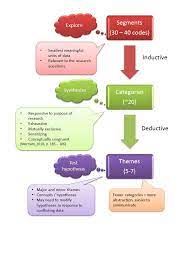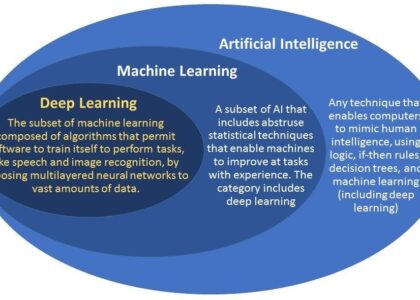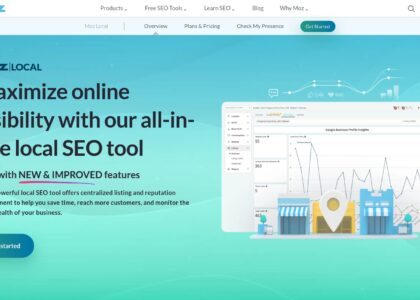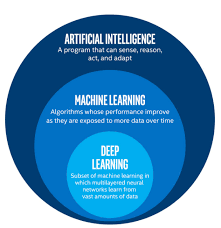Understanding Qualitative Data Analysis
Qualitative data analysis is a method used to interpret non-numerical data, such as text, images, videos, and observations. Unlike quantitative data analysis that focuses on numerical measurements and statistical analysis, qualitative data analysis aims to uncover patterns, themes, and meanings within the data.
The Process of Qualitative Data Analysis
The process of qualitative data analysis involves several key steps:
- Data Collection: The first step is to gather qualitative data through methods such as interviews, focus groups, or observations.
- Data Organisation: Once the data is collected, it needs to be organised in a systematic way for easier analysis.
- Data Coding: Coding involves assigning labels or tags to segments of data based on common themes or patterns.
- Data Interpretation: In this step, researchers analyse the coded data to identify relationships, trends, and insights.
- Report Findings: Finally, the findings from the qualitative data analysis are reported in a clear and coherent manner.
Benefits of Qualitative Data Analysis
Qualitative data analysis offers several benefits:
- In-depth Insights: It allows researchers to gain in-depth insights into complex phenomena that cannot be captured through quantitative methods alone.
- Flexibility: Qualitative data analysis provides flexibility in exploring diverse perspectives and adapting research methods based on emerging findings.
- Richness of Data: It captures rich and detailed information that can lead to a deeper understanding of the subject under study.
- Holistic Understanding: By focusing on meanings and context, qualitative data analysis helps researchers develop a holistic understanding of the research topic.
Conclusion
In conclusion, qualitative data analysis is a valuable method for exploring complex phenomena and gaining a deeper understanding of human experiences. By following a systematic approach to analysing non-numerical data, researchers can uncover meaningful insights that contribute to knowledge creation and decision-making across various fields.
Exploring the Advantages of Qualitative Data Analysis: In-Depth Insights and Knowledge Creation
- Provides in-depth insights into complex phenomena
- Allows for flexibility in research methods
- Captures rich and detailed information
- Facilitates exploration of diverse perspectives
- Helps uncover implicit meanings and nuances
- Encourages a holistic understanding of the data
- Promotes researcher reflexivity and engagement with the data
- Supports the discovery of unexpected patterns or themes
- Contributes to knowledge creation and theory development
Challenges in Qualitative Data Analysis: Navigating Subjectivity, Time Constraints, and Resource Demands
Provides in-depth insights into complex phenomena
Qualitative data analysis offers a significant advantage by providing in-depth insights into complex phenomena. Unlike quantitative data analysis, which may overlook the nuances and intricacies of human experiences, qualitative analysis delves deep into the underlying meanings, contexts, and relationships within the data. This approach allows researchers to explore multifaceted issues comprehensively, uncovering rich details and diverse perspectives that contribute to a more profound understanding of the subject matter. By capturing the complexity of human behaviour and interactions, qualitative data analysis enables researchers to gain valuable insights that can inform decision-making and drive meaningful advancements in various fields.
Allows for flexibility in research methods
Qualitative data analysis offers the advantage of allowing flexibility in research methods. Researchers have the freedom to adapt their approaches based on emerging findings and explore diverse perspectives within the data. This flexibility enables a more nuanced and comprehensive understanding of the subject under study, as researchers can adjust their methods to best capture the richness and complexity of qualitative data. By embracing this flexibility, researchers can uncover hidden insights and patterns that may not be apparent through rigid or predefined research methodologies, ultimately enhancing the depth and quality of the analysis.
Captures rich and detailed information
Qualitative data analysis excels in capturing rich and detailed information that provides a deep understanding of the subject under study. By delving into the nuances and complexities of qualitative data, researchers can uncover intricate insights, subtle patterns, and contextual meanings that may be overlooked by quantitative methods. This depth of information allows for a comprehensive exploration of diverse perspectives and experiences, enriching the research findings and contributing to a more nuanced understanding of the research topic.
Facilitates exploration of diverse perspectives
Qualitative data analysis offers the significant advantage of facilitating the exploration of diverse perspectives. By delving into non-numerical data through methods such as interviews, observations, and textual analysis, researchers can capture a wide range of viewpoints and experiences. This approach allows for a comprehensive understanding of complex phenomena from multiple angles, enabling researchers to uncover nuanced insights that may not be apparent through quantitative analysis alone. The exploration of diverse perspectives in qualitative data analysis enriches research findings and contributes to a more holistic interpretation of the subject matter.
Helps uncover implicit meanings and nuances
Qualitative data analysis excels in uncovering implicit meanings and nuances that may be overlooked by quantitative methods. By delving into the subtleties and intricacies of non-numerical data, researchers can reveal underlying themes, emotions, and perspectives that provide a deeper understanding of the subject matter. This pro of qualitative data analysis allows for a more comprehensive exploration of complex phenomena, shedding light on implicit connections and layers of meaning that contribute to a richer and more nuanced interpretation of the data.
Encourages a holistic understanding of the data
Qualitative data analysis encourages a holistic understanding of the data by allowing researchers to delve into the nuanced details and context of the information. This approach enables them to explore relationships, patterns, and meanings within the data that may not be apparent through quantitative methods alone. By considering the broader context and multiple perspectives, researchers can gain a comprehensive view of the subject under study, leading to more insightful interpretations and informed decision-making.
Promotes researcher reflexivity and engagement with the data
Qualitative data analysis promotes researcher reflexivity and engagement with the data by encouraging researchers to reflect on their own biases, assumptions, and perspectives throughout the analysis process. This self-awareness allows researchers to critically examine how their own background and experiences may influence the interpretation of the data. By actively engaging with the data in this way, researchers can enhance the depth and richness of their analysis, leading to more nuanced insights and a deeper understanding of the research topic.
Supports the discovery of unexpected patterns or themes
Qualitative data analysis excels in supporting the discovery of unexpected patterns or themes within the data. By delving into the nuances of non-numerical information, researchers can uncover hidden connections, emerging trends, or unique insights that may have been overlooked with a purely quantitative approach. This capability to reveal unexpected patterns not only enriches the depth of understanding but also opens new avenues for exploration and interpretation in research and decision-making processes.
Contributes to knowledge creation and theory development
Qualitative data analysis plays a crucial role in contributing to knowledge creation and theory development. By delving into the nuances of non-numerical data, researchers can uncover intricate patterns, themes, and meanings that enrich existing knowledge and fuel the development of new theories. Through a systematic exploration of qualitative data, researchers can generate fresh insights, challenge existing assumptions, and propose novel frameworks that advance understanding in various disciplines. This process of knowledge creation and theory development not only enhances scholarly discourse but also paves the way for innovative solutions to real-world problems.
Subjectivity
One significant drawback of qualitative data analysis is the issue of subjectivity. Researchers’ interpretations and biases can heavily influence the analysis process, potentially resulting in subjective findings. The subjective nature of qualitative data analysis raises concerns about the reliability and validity of the conclusions drawn from the data. It is essential for researchers to be aware of their own biases and strive to maintain objectivity throughout the analysis process to mitigate the impact of subjectivity on the research outcomes.
Time-Consuming
One significant drawback of qualitative data analysis is its time-consuming nature. The intricate process of analysing non-numerical data, such as text, images, and observations, requires careful examination and interpretation. Researchers must dedicate a considerable amount of time to coding, organising, and interpreting the data to uncover meaningful insights and patterns. This extensive investment of time can delay research projects and may hinder the timely delivery of results or conclusions.
Limited Generalisability
One significant drawback of qualitative data analysis is its limited generalisability. The findings derived from qualitative research may not always be applicable or representative of a broader population or context. Since qualitative data analysis often focuses on in-depth exploration and understanding of specific cases or individuals, the results may lack the statistical power to be generalised to a larger scale. This limitation can restrict the applicability and transferability of findings, making it challenging to draw universal conclusions or make broad predictions based solely on qualitative data analysis.
Difficulty in Replication
One significant drawback of qualitative data analysis is the difficulty in replication. Unlike quantitative studies that rely on numerical measurements and statistical analysis, replicating qualitative data analysis studies can be challenging due to the subjective nature of qualitative data and interpretations. The unique characteristics of qualitative data, such as rich narratives and diverse perspectives, make it challenging to replicate the exact conditions or capture the same nuances in subsequent studies. This limitation raises concerns about the reliability and generalisability of findings derived from qualitative data analysis, highlighting the need for transparency and thorough documentation to enhance reproducibility in qualitative research.
Resource-Intensive
Qualitative data analysis poses a notable challenge due to its resource-intensive nature. Conducting qualitative analysis demands skilled researchers who possess the expertise to interpret and code complex data accurately. Furthermore, the process is time-consuming, requiring meticulous attention to detail and thorough examination of the data. In addition, advanced technology tools may be necessary to facilitate efficient analysis, adding to the overall resource requirements. The need for substantial resources in terms of skilled personnel, time allocation, and technological support can present a barrier for some research projects or organisations looking to utilise qualitative data analysis effectively.






